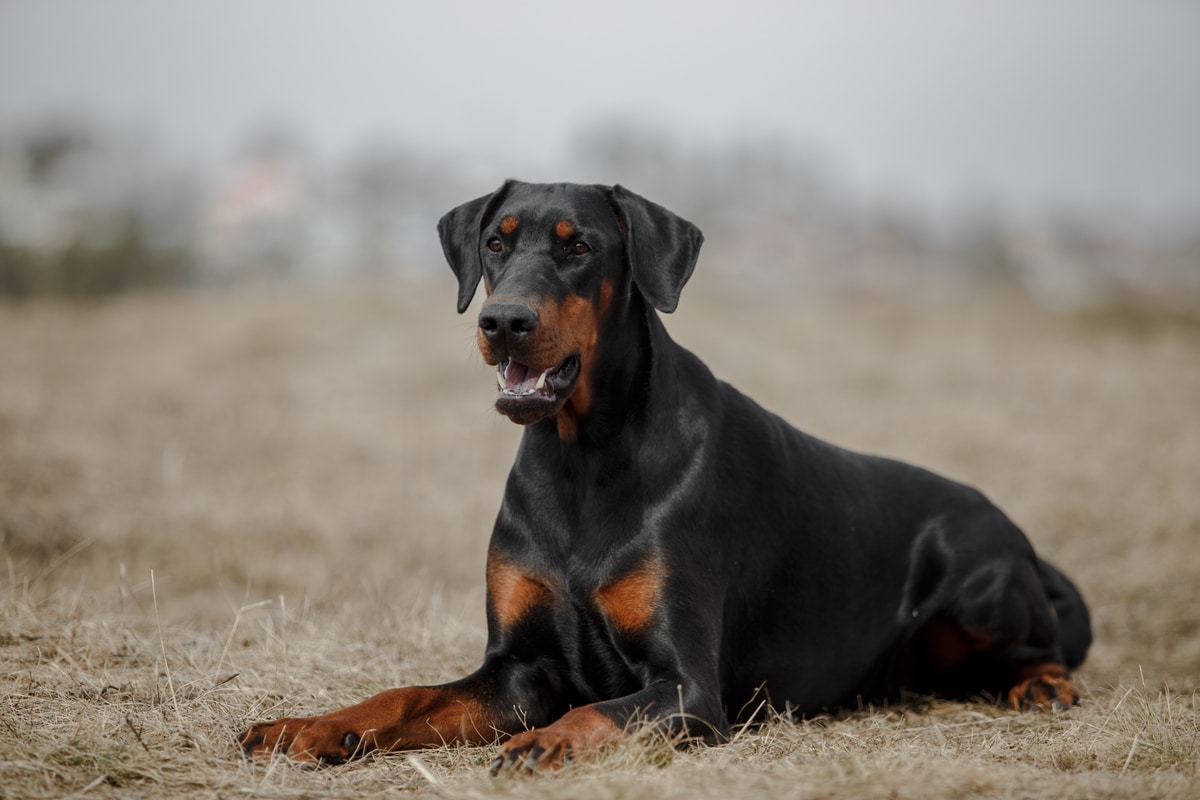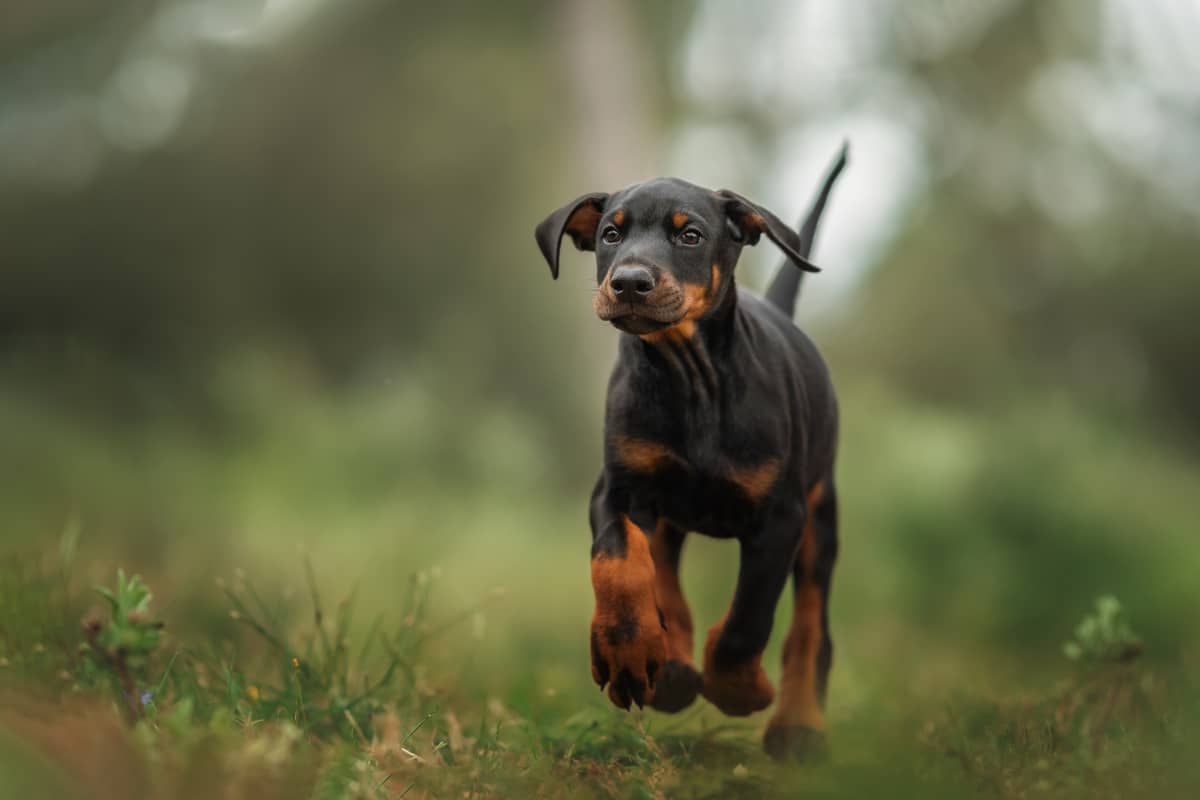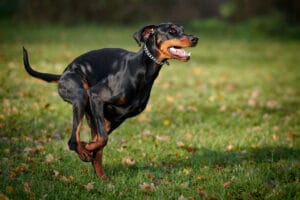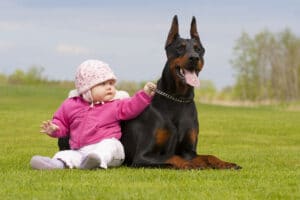Dobermans have multiple excellent qualities for families looking for house pets with their loyalty and intelligence. They also bond well with kids, especially if they undergo proper training while young.
Dobermans are fun dogs to have around at home. They love playing games and are energetic, fitting most families and lifestyles. Dobies are also an excellent source of unconditional love and companionship. Here are some traits of Dobermans you should know:
- Affectionate and loving family dogs
- Obedient
- Easily trainable
- Protective and great as a guard dog
- Athletic and muscular
Can Dobermans be Left Alone?
One of the most important questions for anyone who wants to get a Doberman is where they can be left alone. The answer is yes! Dobermans can be left alone, but not for extended periods.
At least six hours or less is all the time a Doberman can handle being away from their owner. Dobermans are a loving and protective breed of dogs who require constant attention.
Unfortunately, because we live in the real world, owners cannot spend every hour of their day with their Doberman. If the Doberman has separation anxiety, it can be harder to leave them alone for long.
Tips for leaving Dobermans with Separation Anxiety
When leaving a Doberman home alone, you should ensure they are well-trained and socialised for the best results. Whether you can leave your Doberman alone also depends on other factors like their age, health, and personality traits.
If you think your Doberman is suffering from separation anxiety, here are some tips you can try when at work:
Doggy Day Care: It might be a good idea to take your Doberman to doggy daycare if they become destructive when left alone. Dogs with separation anxiety are likely to create problems like barking when away. With proper socialising with other dogs, Dobermans can have fun spending their time playing at the doggy daycare.
Hire a pet sitter: If you want your Doberman to stay in a familiar environment, hiring a pet sitter can be the best option for you. Depending on their routine, pet sitters can take your Doberman for walks or to the park while you are away.
Get help from friends and family: If you trust your friends and family members with your Doberman, they can take care of your dog while you are at work.
Keep them busy: Keeping your Doberman busy while you are away can keep their mind off you not being there. You can do this using puzzle and treat-dispensing toys. You can also play with them so that they are worn out and tired by the time you leave.
Can Dobermans be aggressive?
Breeding Dobermans was mainly for protection due to their intimidating and fierce nature. Although they can be slightly aggressive to other canines, they are not aggressive to their owners. They are, however, not friendly to strangers.
Are Dobermans good with children?
A well-bred Doberman is an excellent family dog. With proper training, Dobermans can be protective over the children in their families. Training kids on how to behave around Dobermans will help improve their relationships. They should also be under supervision when around the dog.









